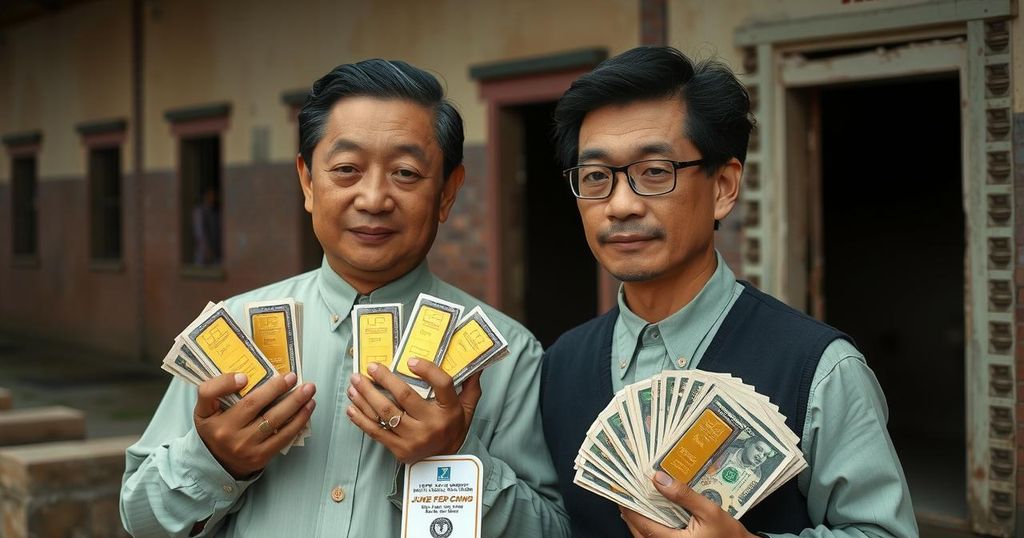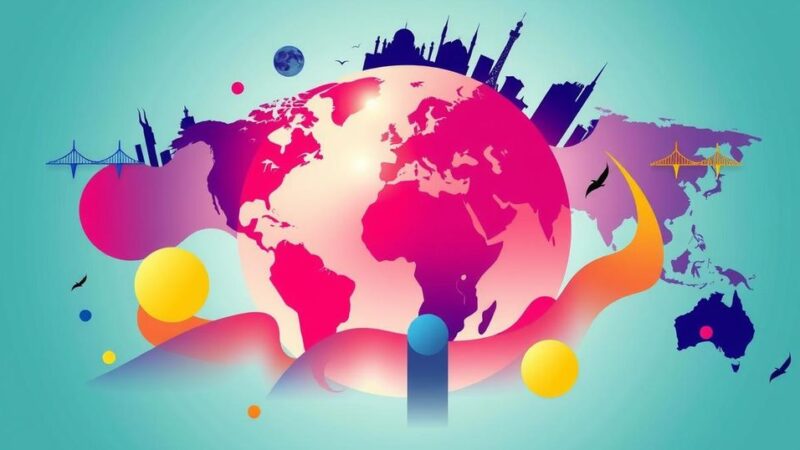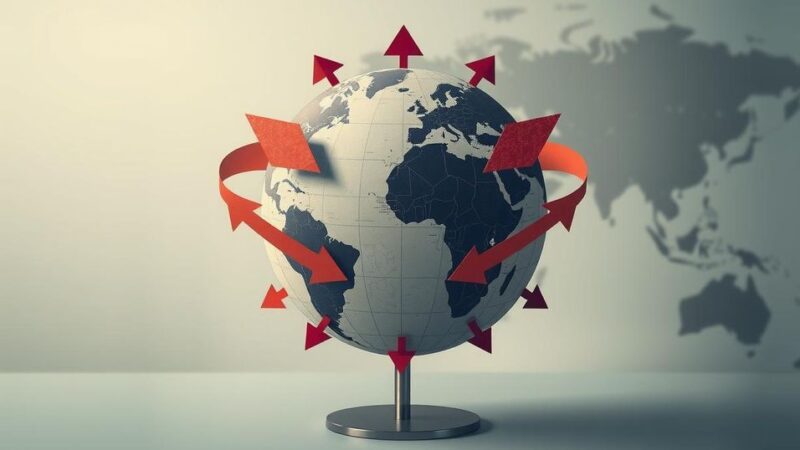In a significant enforcement action in eastern DRC, three Chinese nationals were arrested with 12 gold bars and $800,000 cash hidden in their vehicle. This operation, executed discreetly due to prior releases of other suspects tied to illegal mining, reflects ongoing issues surrounding the illicit exploitation of the region’s mineral wealth amidst unstable conditions. The DRC continues to confront challenges in controlling its rich natural resources amid international scrutiny and regional conflict.
Three Chinese nationals were apprehended in the eastern region of the Democratic Republic of Congo (DRC) while in possession of 12 gold bars and a significant sum of $800,000 in cash, as reported by local authorities. The gold and cash were reportedly concealed beneath the seats of the vehicle in which they were traveling. The operation to arrest these individuals was conducted discreetly, following concerns raised from the prior release of another group of Chinese nationals implicated in operating an illegal gold mine nearby.
Eastern DRC is known for its vast natural resources, including gold and diamonds, and the lucrative minerals required for battery production. However, the region has faced prolonged conflict partly due to the exploitation of these resources by various foreign entities since colonial times. Numerous militia groups dominate the mining operations, benefiting financially from the trade of these valuable assets to intermediary dealers, some of whom maintain connections with influential figures in Kinshasa, the capital. Governor Jean Jacques Purusi highlighted that the necessity for secrecy in this arrest operation stemmed from these illicit connections.
The governor noted that the arrest followed a tip-off, leading to a thorough search of the suspects’ vehicle in Walungu, a region near the Rwandan border. While the exact quantity of gold seized was not disclosed, the governor expressed his astonishment that a previous group of 17 Chinese nationals, held on related charges, had been released and allowed to depart for China. He emphasized that this undermined efforts to reform the DRC’s often opaque mineral sector, especially considering their outstanding tax liabilities amounting to $10 million. The Chinese embassy has yet to issue a statement regarding these allegations.
This incident occurs amid ongoing violence in the neighboring North Kivu province, where a rebel faction purportedly backed by Rwanda has captured significant territories. Recently, the DRC government has filed a lawsuit against Apple due to the alleged use of “blood minerals,” to which Apple has responded by discontinuing its procurements from both DRC and Rwanda. The Rwandan government has denied accusations of facilitating the illegal export of minerals from the DRC.
According to legal representatives of the Congolese government, these resources, extracted from conflict zones, are believed to be funneled through international supply chains, perpetuating cycles of violence, financing militia activities, and resulting in severe societal harms, including forced child labor and environmental degradation.
The Democratic Republic of Congo is rich in various minerals, including gold and diamonds, which have attracted both legitimate and illicit exploitation. The legacy of colonial plunder, coupled with ongoing conflicts and instability, has caused a continuing struggle over resource control. Militia groups have historically managed these mining operations, resulting in complicated networks of illegal trade involving foreign entities. The recent apprehension of the Chinese nationals highlights persistent issues linked to illegal mining and smuggling operations in the region. Furthermore, international scrutiny has intensified around the supply chains of conflict minerals, compelling foreign companies to reconsider their sourcing practices.
The apprehension of the three Chinese nationals in eastern DRC underlines the ongoing issues related to illegal mining and the involvement of foreign entities in the exploitation of the region’s mineral wealth. As the DRC grapples with its resource-driven conflicts, it faces challenges not only from local militia but also from powerful international interests. The recent trends in arrests reflect the government’s attempts to reclaim control over its minerals, although successful reform remains elusive against the backdrop of persistent violence and corruption.
Original Source: www.bbc.com






